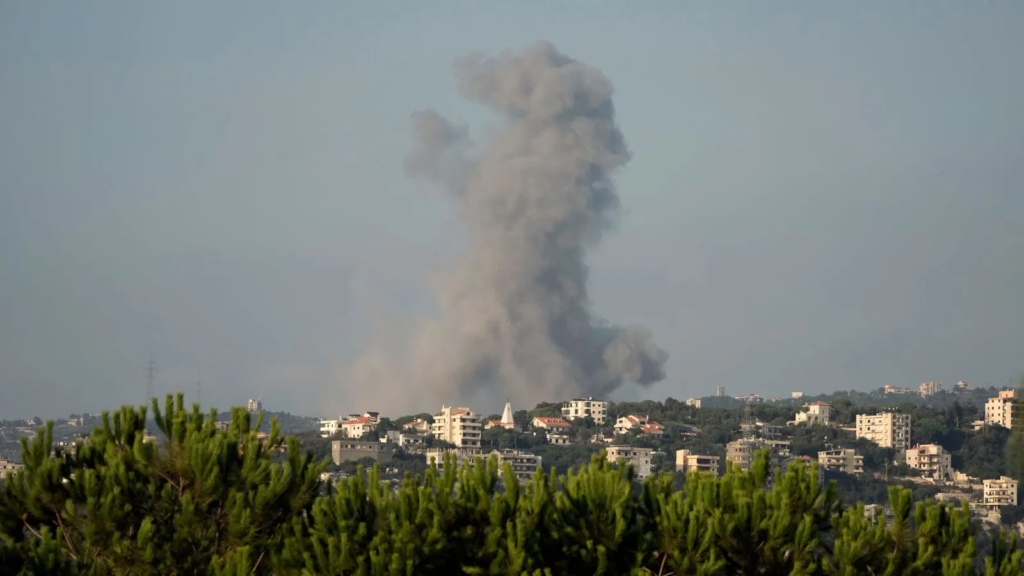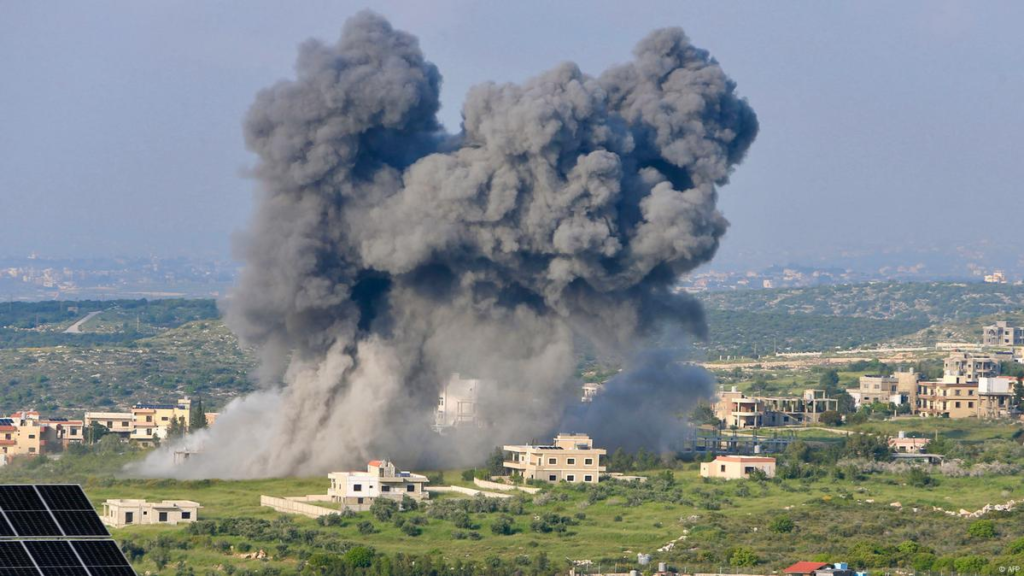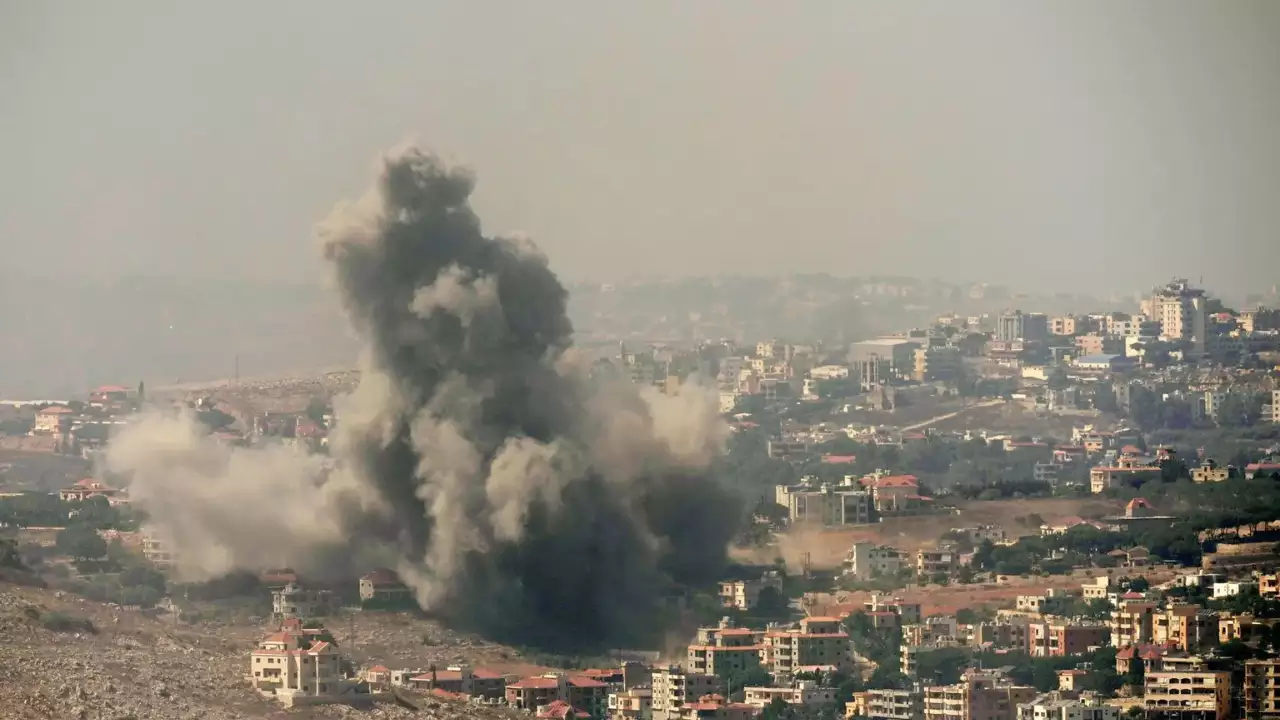The 21-day ceasefire deal between Israel and Hezbollah has become a focal point of international diplomatic efforts, as hostilities between the two sides show no signs of slowing down.
As Hezbollah continues to launch rockets into Israel and Israel responds with military strikes, both sides have rejected global pleas for de-escalation. While the U.S. and France push for a truce, Israel remains firm in its stance, further escalating tensions across the Middle East.
Israel’s Firm Rejection of the 21-Day Ceasefire Deal
The proposal for a 21-day ceasefire deal has gained traction among international diplomats, but Israel has decisively rejected the plan. Despite mounting pressure from its allies, particularly the United States, Israel remains committed to continuing its offensive against Hezbollah.
Prime Minister Benjamin Netanyahu has made it clear that Israel will not stop its military operations until all objectives are met. Netanyahu’s comments came as Israel intensified airstrikes in Beirut and other parts of Lebanon, killing dozens and displacing thousands. The rejection of the ceasefire proposal has only heightened fears of a broader regional conflict.
Read : Hezbollah Fires Missile at Israeli Spy Agency Mossad, Israeli Strikes Back
At a meeting with reporters before addressing the U.N. General Assembly, Netanyahu reiterated his stance, saying, “We will not stop until we achieve all our goals, first and foremost returning the residents of the north safely to their homes.”
Read : Hezbollah Fires Over 200 Rockets Into Israel to Avenge Strike That Killed Senior Commander: Watch
These remarks underscored Israel’s firm commitment to restoring stability in its northern regions, which have been severely impacted by cross-border attacks from Hezbollah.
Hezbollah’s Role and Iran’s Influence
Hezbollah, a militant group supported by Iran, has been engaged in hostilities with Israel since its inception in the 1980s. As a major Iranian proxy in the region, Hezbollah has evolved into a formidable force in the Middle East, playing a key role in conflicts across Lebanon and Syria.

Despite international calls for peace, Hezbollah continues to launch missiles and carry out attacks against Israel. In retaliation, Israeli forces have targeted Hezbollah leaders and strategic positions, including infrastructure believed to be used for arms transfers from Syria to Lebanon.
The 21-day ceasefire deal, backed by the U.S. and France, was meant to offer a temporary halt to the fighting. However, both Israel and Hezbollah appear unwilling to compromise. Hezbollah’s refusal to back down, coupled with Israel’s rejection of the ceasefire, has exacerbated an already volatile situation.
International Diplomatic Efforts
The rejection of the 21-day ceasefire deal has not deterred international leaders from pursuing peace. French President Emmanuel Macron, who played a significant role in proposing the ceasefire plan, expressed disappointment but remained hopeful that Israel might reconsider.
Macron stated, “It would be a mistake by the prime minister to refuse it because he would be taking responsibility for regional escalation.” He also mentioned that France was prepared to call for a new U.N. Security Council meeting to push for the proposal.
Meanwhile, U.S. diplomats, including Secretary of State Antony Blinken, have been actively engaging with Israeli officials in an attempt to revive the ceasefire talks.
The White House remains cautiously optimistic, with spokesperson John Kirby stating that Israel had been “fully informed and fully aware” of the ceasefire proposal’s details.

Despite these diplomatic efforts, the situation on the ground continues to worsen. Israeli airstrikes have intensified, particularly in the Lebanese capital, Beirut, where casualties continue to mount.
Lebanese authorities have reported hundreds of deaths and significant damage to infrastructure, prompting an urgent appeal to the United Nations for immediate action.
Mounting Humanitarian Crisis in Lebanon
The ongoing conflict has taken a heavy toll on civilians, particularly in Lebanon. The continued fighting has led to a massive humanitarian crisis, with hundreds of thousands of people displaced.
Hospitals are overwhelmed, and basic services are becoming increasingly difficult to maintain as the country struggles to cope with the influx of refugees and injured citizens.
Lebanese Foreign Minister Abdallah Bou Habib has been vocal about the need for an immediate ceasefire, warning that the current crisis threatens Lebanon’s very existence.
In a passionate plea to the U.N. General Assembly, he said, “Lebanon is currently enduring a crisis which is threatening its very existence. We need to stop this before the situation spirals out of control.”
Despite these warnings, there seems to be no end in sight to the violence. Hezbollah has shown no signs of backing down, and Israel remains firm in its resolve to continue its military operations. The 21-day ceasefire deal, once viewed as a potential lifeline, now appears to be nothing more than a fleeting hope.
The Regional Impact and Threat of Broader Conflict
As the conflict between Israel and Hezbollah rages on, there are growing fears of a wider regional war. Both sides have powerful allies in the region, and the possibility of other nations being drawn into the conflict looms large.

Iran, which has long supported Hezbollah, continues to play a critical role in the group’s operations. Reports of arms transfers and military support have only added fuel to the fire, with Israeli airstrikes targeting convoys and infrastructure believed to be linked to these activities.
The situation has also raised concerns about the involvement of other militant groups. On Thursday, the Israeli military intercepted a missile launched by Yemen’s Houthi militants, who, like Hezbollah, receive support from Iran. The Houthis have openly declared their solidarity with Hezbollah and Hamas, further complicating the regional dynamics.
Meanwhile, diplomatic discussions continue on the sidelines of the U.N. General Assembly, where leaders from around the world have gathered to address the crisis.
While the 21-day ceasefire deal remains on the table, the chances of it being accepted appear slim, given Israel’s firm rejection and Hezbollah’s refusal to de-escalate.
The 21-day ceasefire deal initially offered a glimmer of hope for an end to the bloodshed, but the rejection by Israel and the defiance of Hezbollah have thrown the region into deeper turmoil.
As the conflict escalates, the humanitarian toll in Lebanon continues to grow, with no immediate resolution in sight. International efforts, led by the U.S. and France, persist, but the path to peace remains fraught with challenges. Both sides remain entrenched in their positions, leaving the region on the brink of an all-out war.
As Israel presses forward with its military campaign and Hezbollah maintains its attacks, the prospect of a peaceful resolution seems increasingly distant. For now, the 21-day ceasefire deal remains a distant goal, overshadowed by the grim realities on the ground.


Thank you for your sharing. I am worried that I lack creative ideas. It is your article that makes me full of hope. Thank you. But, I have a question, can you help me?
of course i would like to help you if i can.
I don’t think the title of your article matches the content lol. Just kidding, mainly because I had some doubts after reading the article.
Can you be more specific about the content of your article? After reading it, I still have some doubts. Hope you can help me.
Thanks for sharing. I read many of your blog posts, cool, your blog is very good.
I don’t think the title of your article matches the content lol. Just kidding, mainly because I had some doubts after reading the article.
Thank you for your sharing. I am worried that I lack creative ideas. It is your article that makes me full of hope. Thank you. But, I have a question, can you help me?
Your point of view caught my eye and was very interesting. Thanks. I have a question for you.
Thanks for sharing. I read many of your blog posts, cool, your blog is very good.
Thanks for sharing. I read many of your blog posts, cool, your blog is very good.
I don’t think the title of your article matches the content lol. Just kidding, mainly because I had some doubts after reading the article.
Thank you for your sharing. I am worried that I lack creative ideas. It is your article that makes me full of hope. Thank you. But, I have a question, can you help me?
Your point of view caught my eye and was very interesting. Thanks. I have a question for you.
Your article helped me a lot, is there any more related content? Thanks!
Thank you for your sharing. I am worried that I lack creative ideas. It is your article that makes me full of hope. Thank you. But, I have a question, can you help me?
Your point of view caught my eye and was very interesting. Thanks. I have a question for you.
Thank you for your sharing. I am worried that I lack creative ideas. It is your article that makes me full of hope. Thank you. But, I have a question, can you help me? https://accounts.binance.com/hu/register-person?ref=FIHEGIZ8
Your article helped me a lot, is there any more related content? Thanks!
Can you be more specific about the content of your article? After reading it, I still have some doubts. Hope you can help me.
Can you be more specific about the content of your article? After reading it, I still have some doubts. Hope you can help me.
Your point of view caught my eye and was very interesting. Thanks. I have a question for you.
Your article helped me a lot, is there any more related content? Thanks!
Your article helped me a lot, is there any more related content? Thanks!
Your point of view caught my eye and was very interesting. Thanks. I have a question for you.
Your article helped me a lot, is there any more related content? Thanks!
Your article helped me a lot, is there any more related content? Thanks!
Your article helped me a lot, is there any more related content? Thanks!
I don’t think the title of your article matches the content lol. Just kidding, mainly because I had some doubts after reading the article.
Thank you for your sharing. I am worried that I lack creative ideas. It is your article that makes me full of hope. Thank you. But, I have a question, can you help me?
Thanks for sharing. I read many of your blog posts, cool, your blog is very good.
Thanks for sharing. I read many of your blog posts, cool, your blog is very good.
Thank you for your sharing. I am worried that I lack creative ideas. It is your article that makes me full of hope. Thank you. But, I have a question, can you help me? https://www.binance.info/ka-GE/register?ref=RQUR4BEO
I don’t think the title of your article matches the content lol. Just kidding, mainly because I had some doubts after reading the article.
Can you be more specific about the content of your article? After reading it, I still have some doubts. Hope you can help me. https://www.binance.info/si-LK/register?ref=V2H9AFPY
I don’t think the title of your article matches the content lol. Just kidding, mainly because I had some doubts after reading the article. https://www.binance.info/en-IN/register?ref=UM6SMJM3
Can you be more specific about the content of your article? After reading it, I still have some doubts. Hope you can help me.
Can you be more specific about the content of your article? After reading it, I still have some doubts. Hope you can help me.
Your article helped me a lot, is there any more related content? Thanks!
Thanks for sharing. I read many of your blog posts, cool, your blog is very good.
Your article helped me a lot, is there any more related content? Thanks!
Thank you for your sharing. I am worried that I lack creative ideas. It is your article that makes me full of hope. Thank you. But, I have a question, can you help me?
Your point of view caught my eye and was very interesting. Thanks. I have a question for you.
Thanks for sharing. I read many of your blog posts, cool, your blog is very good.
Your point of view caught my eye and was very interesting. Thanks. I have a question for you.
I don’t think the title of your article matches the content lol. Just kidding, mainly because I had some doubts after reading the article.
Your point of view caught my eye and was very interesting. Thanks. I have a question for you.
Your point of view caught my eye and was very interesting. Thanks. I have a question for you.
Thanks for sharing. I read many of your blog posts, cool, your blog is very good.
I don’t think the title of your article matches the content lol. Just kidding, mainly because I had some doubts after reading the article.
I don’t think the title of your article matches the content lol. Just kidding, mainly because I had some doubts after reading the article.
Can you be more specific about the content of your article? After reading it, I still have some doubts. Hope you can help me. https://www.binance.info/de-CH/register?ref=W0BCQMF1
Your point of view caught my eye and was very interesting. Thanks. I have a question for you.
Your article helped me a lot, is there any more related content? Thanks!
Your point of view caught my eye and was very interesting. Thanks. I have a question for you.
I don’t think the title of your article matches the content lol. Just kidding, mainly because I had some doubts after reading the article.
Thank you for your sharing. I am worried that I lack creative ideas. It is your article that makes me full of hope. Thank you. But, I have a question, can you help me?
Can you be more specific about the content of your article? After reading it, I still have some doubts. Hope you can help me. https://accounts.binance.info/zh-TC/register?ref=DCKLL1YD
Can you be more specific about the content of your article? After reading it, I still have some doubts. Hope you can help me.
Thanks for sharing. I read many of your blog posts, cool, your blog is very good.
I don’t think the title of your article matches the content lol. Just kidding, mainly because I had some doubts after reading the article.
Your article helped me a lot, is there any more related content? Thanks!
Your article helped me a lot, is there any more related content? Thanks!
Your point of view caught my eye and was very interesting. Thanks. I have a question for you. https://www.binance.com/pt-PT/register?ref=KDN7HDOR
Thank you for your sharing. I am worried that I lack creative ideas. It is your article that makes me full of hope. Thank you. But, I have a question, can you help me?
Can you be more specific about the content of your article? After reading it, I still have some doubts. Hope you can help me. https://accounts.binance.com/id/register?ref=UM6SMJM3
Can you be more specific about the content of your article? After reading it, I still have some doubts. Hope you can help me. https://www.binance.info/register?ref=IHJUI7TF
I don’t think the title of your article matches the content lol. Just kidding, mainly because I had some doubts after reading the article. https://accounts.binance.info/register-person?ref=IHJUI7TF